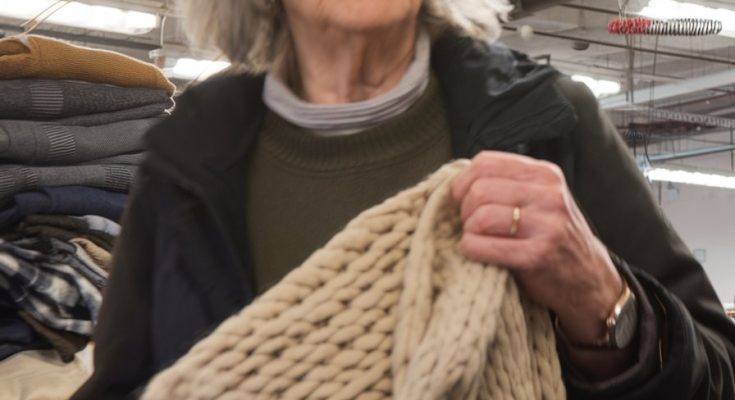I recently discovered that teaching an important lesson sometimes requires more than just grounding my grandkids for what they did to my wife. Instead, I decided they needed a more meaningful challenge to truly understand.
I’m Clarence, 74, and my wife, Jenny, 73, has always been the kindest and most patient person, especially with our grandchildren. Every year, she knits beautiful sweaters for their birthdays and Christmas, putting her heart and soul into each one. From plush toys for the younger ones to cozy blankets for the older kids, her handmade gifts are a symbol of her love.
Last week, during a casual trip to the thrift store, something heartbreaking happened. As we browsed the aisles, Jenny froze in front of a rack of clothes. There, hanging among the second-hand items, were the very sweaters she had knitted for our grandkids—now for sale. One in particular, a blue and grey striped sweater she had made just last Christmas for our oldest granddaughter, was unmistakable. I saw the pain in her eyes as she touched the fabric, trying to smile. ‘It’s okay,’ she whispered, ‘Maybe they didn’t want to wear grandma’s sweaters.’
Her quiet acceptance broke my heart, but I couldn’t let it go. That evening, I went back to the store and bought every single sweater she had made.
The next day, I sent each grandkid a package containing wool, knitting needles, and simple instructions. Along with it, I included a photo of the discarded sweater and a note: ‘I know what you did. Now, you’ll knit your presents yourself.’
The reactions varied. Some grandkids called to apologize, realizing the effort they had taken for granted. Others stayed silent, unsure of how to respond. But I knew the message had been received.
When we gathered for a family dinner, the grandkids arrived wearing their own knitted attempts. The results were far from perfect—uneven sleeves, misshapen bodies, and incomplete pieces—but that wasn’t what mattered.
What mattered was the remorse in their eyes. ‘We’re so sorry for taking your gifts for granted, Grandma,’ one said, as the others nodded in agreement. They had tried knitting themselves and learned just how much effort went into each of Jenny’s creations. ‘Knitting is way harder than I thought,’ confessed our oldest grandson, tugging at his awkward sweater.
Jenny, ever forgiving, embraced each of them. Later, she turned to me with a smile. ‘I can’t believe you made them do this.’ I smiled back. ‘They needed to understand that your gifts are more than just clothes—they’re symbols of love.’
As the evening went on, laughter replaced the earlier tension, with jokes about their failed knitting attempts. The grandkids had learned more than just knitting—they had learned gratitude, respect, and the true value of a handmade gift.
Before they left, I had one final surprise. I brought in bags from the car and handed them out. Inside were the original sweaters Jenny had made and I had bought back from the thrift store. The kids were overjoyed and immediately swapped out their amateur creations for their grandmother’s perfect work.
As they hugged us goodbye, they promised to cherish their gifts from now on—a promise that meant more to Jenny than any sweater ever could.



